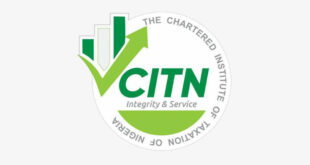By Prince Enahoro Erijoh
I recently read an article titled ‘2019 and the Delta Progressives’ by Mr Godwin Anaughe which generated a lot of interest and debate. I believe the article is exactly right on the core issue of power rotation in Delta State. Its conclusion truly reflects the pulse of the voters in the state, especially minorities, who collectively can swing the gubernatorial election to any direction. It is my view that rejecting power rotation will likely consign APC to opposition in Delta State for a long time to come, while accepting it will enable the party build a winning coalition that is capable of taking over Delta State in 2019. And this is why. 
Nigeria is fragmented along ethnic lines. And the natural fear of minorities against the dominance of majority groups has continued to fuel the unending, deep and widespread support for power rotation across the length and breadth of the nation. Ethnic interests, more than anything else defines the politics.
Delta State is no exception. Even across the three senatorial districts of the state, there is fragmentation of tongues. There are Ijaws, Isokos and Itsekiris in Delta South. We have Ika, Oshimili, Aniocha and Ndokwa in Delta North and in Delta Central which is predominantly inhabited by the Urhobos, we also have Okpe, Uvwie, Udu etc.
Right from when Delta state was created, these tribes have expressed deep concerns about the crucial matter of fair and equitable distribution of power in the state; and till this day it remains a very deeply emotional and compelling heart-and-mind sentiment among all the people. The passion that is tied to power rotation is so strong that it is now even adopted in the local administration of some communities across the state.
We have also seen that the cooperation or otherwise of minorities is now a very important factor that determines the outcome of elections. Every objective and discerning mind will agree that this was the key determining factor in the 2015 national election when, after many attempts, a northerner, President Muhammadu Buhari, succeeded with the support of voters of the South West, at a time when power rotation favoured the North. We must recall that the PDP, against every advice, went ahead and featured a candidate that was not in alignment with power rotation, and even with all the resources at its disposal and the power of incumbency, it lost.
In Delta State, the wide acceptance of power rotation was also able to trump every other factor in 2015 governorship election, because minority tribes in Delta North and South also see power rotation as the only means by which they too would be able to produce the governor of the state and voted for Senator Ifeanyi Okowa of Anioma. This is justified on the basis that both Delta Central and South had taken their turns to serve for eight years in office as Governor.
Though Delta North is multi-lingual, the Aniomas takes this first chance at government house very passionately, and the justifiable reality today is that they strongly desire and deserve to serve out their own eight years no matter the party that produces the Governor of the state. Anything that goes against this long-held expectation would be counter-productive; and an attempt by any person, group of persons or zone to cut short their joy would be met with stiff resistance in the ballot box.
Can anyone honestly question the Aniomas, who now enjoy the support of other minority ethnic tribes in Delta South, for protecting and jealously guarding this unique interest of theirs, especially when it is clear that the other two zones have served out their own fair share? By extension, anytime this unwritten code or arrangement is threatened by any dominant ethnic group, the minorities tend to rise in defense of power rotation, knowing fully well that they too will stand to benefit from it in the near future.
The fact that most Deltans are already dissatisfied with the performance of the incumbent governor, Senator Ifeanyi Okowa, and should be thinking differently towards the 2019 governorship election provides the All Progressives Congress (APC) a unique opportunity to take over Delta State. But for this to happen, the APC must give adequate consideration to this issue which is of utmost importance to most of the voters whose choice, will ultimately determine who becomes the next governor of the state.
Therefore, it would be a grave mistake for APC not to take power rotation into consideration on the flimsy and untenable excuse that PDP introduced power rotation into Delta politics. The fact is that Delta PDP and the opposition were politically mature enough to recognize the deep emotional desire and strong agitations of the minorities for power rotation but only PDP tapped into it correctly, knowing that to act otherwise will pose a grave threat to their hold on power in the State.
The victory of Governor Ifeanyi Okowa over the other contestants in 2015 is evidence of the impact of power rotation. And since 2015, there has not been any significant change in the dynamics of Delta politics to suggest that its impact on voter preferences will be different in 2019.
The relentless pursuit of fairness and equity in the control of power by the minorities, as a natural response to the pre-existing fear of domination by the largest ethnic group, Urhobo, is still very alive and active. Unfortunately, many who may not wish to face this reality still live in false hope that Delta Central can ride roughshod over the political interests of the other two zones. They forget that in any 3-horse race, a gang-up of any two can spell doom for the third. Therefore, any insistence by Delta Central not to put into consideration the vivid interests of the other two zones will never produce a positive outcome.
From the above, we can understand why the sentiment for continuity of an Anioma Governor remains very strong, if not higher than it was during the 2015 election. For many Anioma indigenes, especially the elderly who are much more committed to election matters, this may probably be a once in a lifetime opportunity and they will never throw it away under any guise.
The other minority ethnic groups are also watchful of any attempt to violate the existing order of power rotation because they are aware that it would delay or even deny them their own chance of producing a governor. As a strong realist, I am very convinced that anyone dreaming of disrupting this order of transfer of power will get a rude shock in 2019.
I am equally convinced that the idea of advancing popularity based on assumed backing of a single ethnic group will fail, more so when it is up against the challenge posed by the wider sympathy with power rotation. To my mind, power rotation, though unspoken of is even more popular and acceptable because it resonates quite well with all the minorities in Delta State.
APC must therefore take a dispassionate assessment of this reality as 2019 looms. The whole idea is that by reflecting deeply and factoring power rotation into its internal political calculations and strategy, delegates will be better informed to make the right decision so that the party can nominate a candidate with a much better chance of winning the 2019 governorship election in the primary election.
Personally, as an Isoko man, I firmly believe in and support power rotation. It gives me hope that one day an Isoko person will become governor of Delta State. I also believe that other minorities like us in Delta State would use their vote to keep this hope alive as men of credibility and competence are abound in all three senatorial districts of the state. This is the reality.
So, let nobody kid you, power rotation matters greatly in Delta state politics. And unless anybody that is against power rotation presents a more convincing and viable path to APC victory, then the party has no other option than to nominate its candidate from Delta North. To act differently is to compel APC to lose 2019 governorship election because the majority of Deltans firmly believe in and will root for power rotation any day.
Subscribe to the Advocate News letter and receive news updates daily in your inbox.
 Advocate.ng Latest news update on politics, entertainment, sport and more
Advocate.ng Latest news update on politics, entertainment, sport and more



